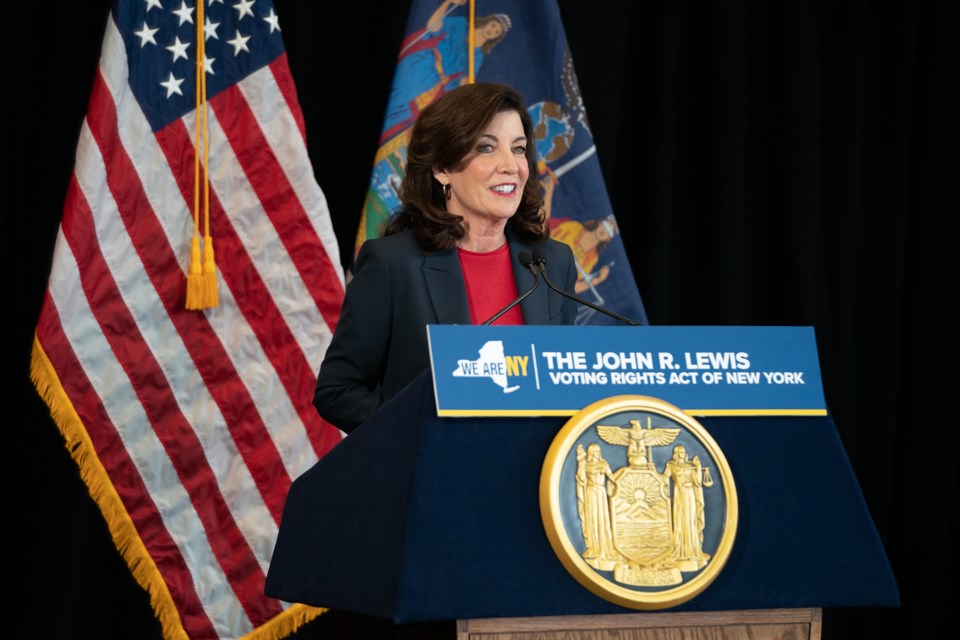Governor Kathy Hochul said the state has made progress in the ongoing efforts to assist individuals experiencing chronic homelessness on the streets and in the subways of New York City into stable housing.
The Safe Options Support initiative has helped more than 450 New Yorkers – many of them living with mental illness – into permanent or specialized housing designed to help stabilize their lives, according to a news release.
This initiative is continuing to expand and is aimed at helping hundreds of others into stable housing in the coming months, the governor said.
Administered by the Office of Mental Health, the Safe Options Support teams had roughly 27,000 outreach encounters since April 2022. The teams also connected nearly 300 individuals with emergency medical, psychiatric or substance use disorder care.
Efforts to expand the program to other communities outside of New York City have been successful, with seven teams now canvassing communities with significant population of individuals experiencing long-term homelessness in the Finger Lakes, Capital Region, Southern Tier, Hudson Valley, Erie County, Westchester County and Long Island.
Efforts are underway to add an additional team in New York City specialized to assist older adults, many of whom are living with unmanaged chronic disease and limited access to healthcare. The Office of Mental Health also recently announced an effort to invest $102 million to broaden wraparound care for individuals with serious mental illness, including adding 26 Critical Time Intervention or ‘CTI’ teams, and two more SOS teams focused on assisting young adults experiencing homelessness.




.png;w=135;h=120;mode=crop)